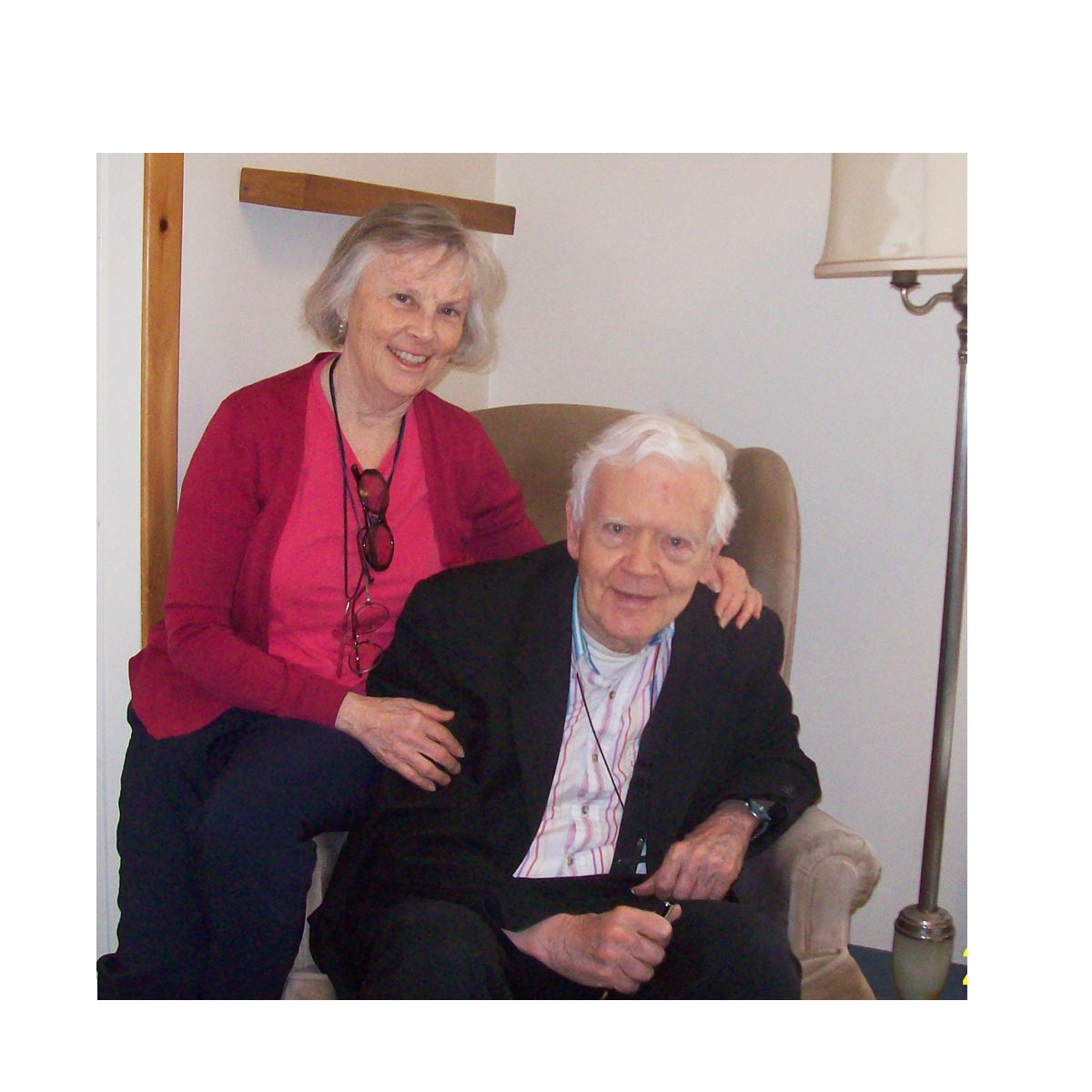This content has been archived. It may no longer be relevant
When I arrived to join Madonna House in 1996, my uncle, Fr. Jim Duffy, a Madonna House priest, stunned me by saying, “You need to find another spiritual director; family doesn’t direct family at Madonna House.”
Unable to imagine anyone besides my beloved uncle, I replied, “but who?”
“You are smart, Fr. Pelton is smart, why don’t you choose him?” he said. So began a 24-year relationship of trust and friendship.
I learned so much from this man who wasn’t afraid to share his intellect, his passion, or his pain. He had read and digested just about every spiritual writer worth reading. He followed American politics (and sports) with great enthusiasm, launching into marathon prayer campaigns for every presidential election in recent memory.
He was conversant on a vast array of subjects, and his keen intellect led him to incisive opinions. When he decided not to have an opinion on the troubles of Zimbabwe/Rhodesia as it was emerging from colonial rule, it was an ascetical decision.
He came from a background of privilege. He was a WASP (white Anglo-Saxon Protestant), a descendant from the early Puritan settlers, including the historical figure, the minister Cotton Mather.
Robert graduated from Yale University and went on to study with Mercea Eliade, the Romanian-American historian of religion at the University of Chicago and one of the most eminent scholars in Comparative Religion of his day. At one time, Father was in line to receive his chair.
He was well aware that he might have chosen that path or otherwise made his mark in the secular culture of American politics or academia.
Having followed a girlfriend to Combermere in the late ’50s, he liked to tell how Catherine Doherty confronted him. “Are you in love with her?” she asked. (He never shared his answer to that question.) “Well, if you are,” she continued, “I can show you how to burn with passion of another kind.” I think that was a turning point in his vocation.
As the first priest ordained for Madonna House, he felt that Catherine loved him as a son. But this gifted and great man also carried a wounded heart. He endured the injury and trauma of growing up in a divorced family.
Sometimes people failed to grasp that his passion for politics and contemporary issues was because he really cared about our culture and our society and was perceptive enough to grasp the Big Issues.
In an era when the disclosure of wrongdoing within the Church was less transparent, he was unafraid. When a journalist directee hesitated to print a story about a scandalous practice in another diocese, Fr. Bob told him to print it despite both their pain.
He also suffered poignantly when people failed to understand his passion for the Right to Life.
He loved the Desert Fathers and imbibed their teachings. When I asked him to teach me how to pray like them, he sat quietly, folded his hands and inclined his head towards his heart. St. Anthony of the Desert was his great model.
With his restless energy and intellect, Fr. Robert sometimes asked himself, “What am I doing at Madonna House?” One answer that came to him was that he was here to suffer, to be purified, and to offer his life for the world in the “desert” of Combermere—like Father Anthony.
Over the years, Fr. Robert’s intellect receded, and he became more and more simple, poor, and childlike.
The Sacred Heart, an image foreign to his Protestant upbringing, became his final resting place. In the end, all that was left was his heart in the heart of Jesus, given for the life of the world.
I am not surprised that he died on the feast of St. Margaret Mary Alacoque. And in the Eastern Rite Melkite calendar, October 16th is the feast of the Holy Centurion Longinus, a Roman whose sword pierced the heart of Christ. According to Eastern tradition, he became a follower of Jesus. What better companion for Fr. Pelton, another seeker who pierced the heart of Christ?
Thank you, Fr. Robert, for all you have done for me





